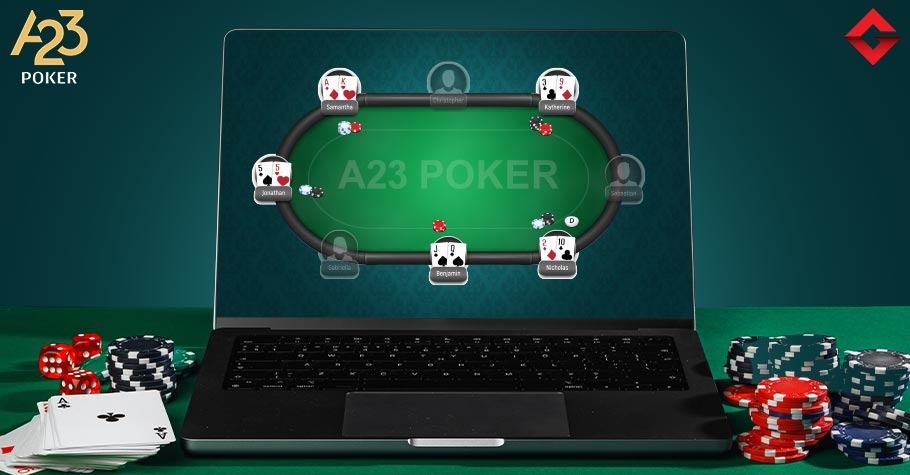 Gaming
Gaming
A Player’s Handbook For Game Economics
Entering the video game world is a thrill of discovery, conflict, and storytelling for many players. However, beneath the surface of any great game is a complex economic mechanism that can either enhance or detract from the gaming experience. Understanding the game economy is becoming increasingly important for today’s gamers, whether you’re managing your in-game money or hanging out on sites like india24bet.
The Fun’s Hidden Mathematics
Game economics covers more ground than virtual currency and treasure boxes. It’s a complex network of tools meant to produce significant decisions and fulfilling experiences. Although most players pay close attention to visible factors like item costs and farming paths, the more subtle features of game economies are sometimes overlooked.
Think of “time value” in games. Game economies often use reverse inflation mechanisms, unlike real-world economics in which inflation slowly reduces buying power. Early-game resources often grow less valuable as players advance, resulting in a natural development curve that players never consciously know they are riding.
Virtual Value: The Psychology
One of the most amazing features of game economics is the way it questions conventional ideas of value. Why would gamers spend hundreds of hours farming for ornamental objects with no use whatsoever? The solution is in the careful equilibrium of psychological reward systems, status signaling, and scarcity.
Through artificial scarcity, games build value; yet, the most successful ones realize that rarity by itself is insufficient. The most sought-after objects in games mix time commitment with skill requirements to provide social recognition through distinctive looks. Additionally, historical relevance and any strategic benefit the object could provide for games are very important.
The Conundrum of Perfect Information
The effect of perfect information is one little addressed feature of game economics. Unlike actual economies, many gaming marketplaces offer total openness on drop rates, designing expenses, and market values. In the virtual economy, this generates fascinating contradictions. Profit prospects should ideally vanish when everyone is aware of the actual value of everything. Still, knowledgeable merchants flourish somehow. Despite everyone knowing their actual rarity, items keep their worth, therefore subverting accepted economic wisdom on market efficiency.
Destroying the Invisible Walls
Sophisticated economic obstacles used in modern games direct player behavior without being immediately obvious. These “soft walls” preserve game balance and provide natural avenues of development. While skill thresholds control resource flow through ability-gated content, knowledge barriers provide market possibilities through information asymmetry. Through group-dependent events, social needs affect economic involvement; time gates limit resource creation by cooldowns and respawn times. Through spatial constraints, even virtual distance causes economic friction.
Social Capital: The Economics
One of the often overlooked features of game economies is the role played by social capital. Beyond conventional currency, participants trade in communal status, reputation, and favors. In the virtual world, reputation systems work similarly to credit ratings, and recruitment into gaming guilds is similar to a job market. Social ties become financial multipliers, and community trust transforms into a form of money. Knowledge sharing represents economic power in ways that parallel the real-world information economy.
ALSO READ: Live Poker Series to Play in Asia – November 2024
The Dark Patterns of Current Monetization
Recognizing possibly manipulative systems is just as crucial even if knowledge of game economics might improve enjoyment. Modern games can use complex psychological triggers based on changing reward systems that replicate gambling rules. While artificial scarcity results through battle pass systems, fear of missing out (FOMO) spurs involvement through limited-time events. Further complicating the scene of player motivation and expenditure is social pressure through guild systems and sunk cost fallacy exploitation through daily login rewards.
The Mathematical Foundation of Balance
Game economies must keep several equilibriums concurrently: between player vs player economics, solo versus group content payouts, and casual versus hardcore growth pathways. Systems of free and premium currencies combine with both short-term and long-term objectives to produce intricate behavioral patterns that creators usually cannot forecast. In games as much as trading, knowing these connections offers major benefits.
The Temporal Economy
Game time management generates an original economic structure. Players continuously assess activity efficiency in terms of rewards per hour and balance opportunity costs of several pursuits. Both the optimization of time-gated content and season pass fulfillment as well as the balance between long-term and short-term investments becomes critical. This generates a meta-economy in which time serves as the main currency, therefore affecting all components of player decision-making.
Virtual Economies: The Future
The gaming business is continually evolving due to commercial activities and modern technologies. Blockchain integration and actual digital ownership let players influence content marketplaces. Commonly occurring are cross-game economies and asset movement across games. Dynamic price solutions grounded on consumer behavior accompany artificial intelligence-powered market management. People have greater control over their virtual economy thanks to community-driven economic systems than they did in past years. Digital scarcity and virtual real estate are also generating fresh forms of value concurrently.
Implementation in Real Life
To use business information, you need a methodical plan. Start by looking into past market trends to learn about the game economy and how it has affected the economy in the past. Keep an eye on developer interactions to see how changes might affect the economy. Set up networks to share market data and information, and always think about how economic choices will affect social capital.
Conclusion
Beyond basic virtual money and item pricing, game economics creates a sophisticated system that affects all elements of gameplay. Understanding these processes helps players enjoy their games, avoid manipulation, and make smart, safe decisions. It’s becoming increasingly necessary to teach casual and competitive gamers this information. Because virtual marketplaces are becoming more complex.
Understanding how closely related systems impact player behavior is one of many aspects of analyzing game economics. System comprehension is one of several. Because they know all the techniques, players make better judgments and enjoy the game more. Today’s players need this understanding since virtual marketplaces are continually evolving and harder.

Gutshot Magazine is India’s leading real money gaming magazine that covers news, updates, previews, highlights, features and much more across verticals like poker, rummy, and fantasy sports. Our rich history that has spanned over a decade now, Gutshot Magazine has always tied up with events and tournaments that have helped push the awareness of skill gaming in the country. If you are looking for the latest updates across real money gaming, then you have arrived at the perfect destination.
More News
Comments
Top 15 Poker Rooms
-
WPT Global
Grab your welcome offer
Offer: 100% of your deposit back up to $3,000 Register -
PokerDangal
Sign up with code GUTSHOT1
Offer: Get 100% GST discount on deposits Register -
Natural8 India
Sign-up with Gutshot
Offer: Get extra 28% on all deposits Register -
Spartan Poker
Sign-up with referral code AFFGSMAG
Offer: FTD 50% Bonus Money up to ₹20K. Deposit code ‘ALLIN50’ Register -
Junglee Poker
Sign-up and get bonus
Offer: Up to ₹50,000* Register -
Calling Station
Sign-up with promo code 'AFFCSGUT'
Offer: 30% FTD bonus with code FTD30 Register -
WinZo Poker
Daily Winnings Up To ₹40 Crore!
Offer: Get ₹550 Joining Bonus For Free Register -
Stake Poker
Welcome bonus
Offer: 200% up to ₹120,000 Register
Newsletter
Thank you for subscribing to our newsletter.
This will close in 20 seconds



























Leave a Reply